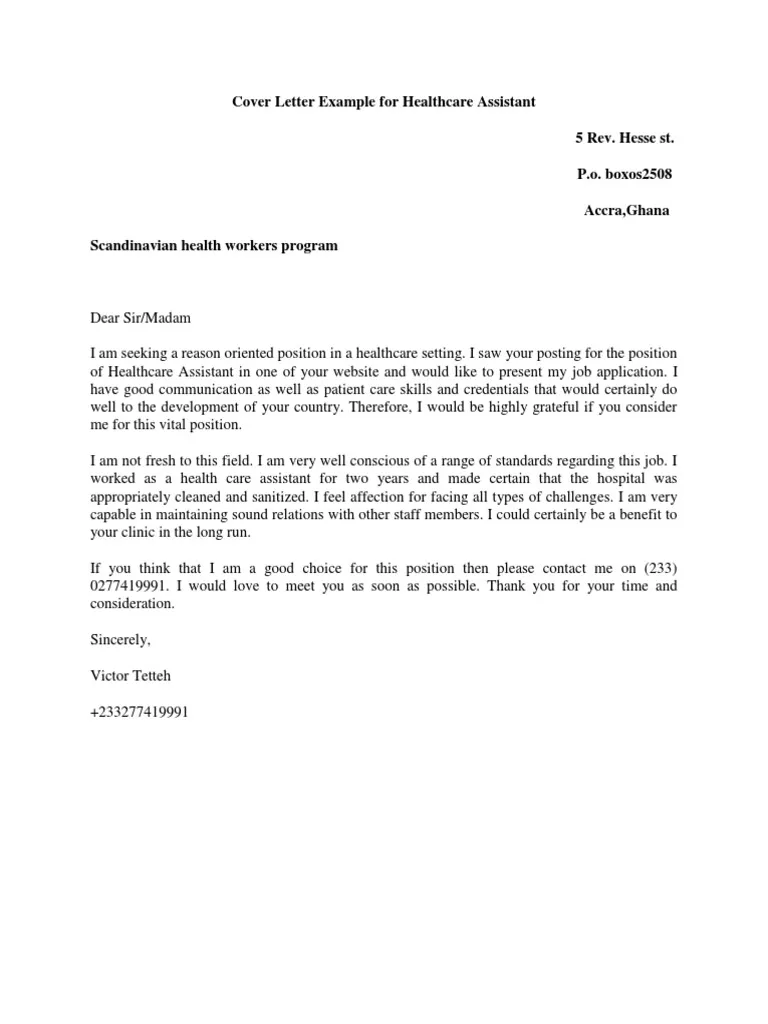The Power of a Healthcare Cover Letter
In the competitive world of healthcare, a well-crafted cover letter can be your secret weapon. It’s your first opportunity to make a strong impression on a potential employer, providing a detailed look into your skills, experience, and passion for the field. While your resume provides a snapshot of your qualifications, your cover letter allows you to elaborate on these points, connect your experiences directly to the job requirements, and express your unique personality. A compelling cover letter not only introduces you but also helps to differentiate you from other applicants. It’s a chance to highlight your understanding of the role and the organization’s mission, showing you’re not just qualified but genuinely interested in contributing to their team. This document can be the deciding factor that sets you apart, showcasing why you’re the perfect fit for the healthcare role.
Why a Cover Letter Matters in Healthcare
In the healthcare industry, where empathy, communication, and attention to detail are paramount, a cover letter demonstrates your ability to articulate your thoughts and connect with the reader. It allows you to express your understanding of patient care, healthcare ethics, and the specific needs of the organization. Many healthcare professionals view cover letters as essential because they offer insights into a candidate’s personality, motivations, and dedication to the field. It helps to showcase your personality and professional demeanor. This is crucial in healthcare roles, where building rapport with patients and colleagues is vital. A well-written cover letter can also indicate your ability to follow instructions and your commitment to accuracy, essential qualities in any healthcare setting. Employers look for candidates who demonstrate a genuine interest in their organization and the ability to communicate effectively; a cover letter is your chance to prove just that.
Highlighting Your Key Skills
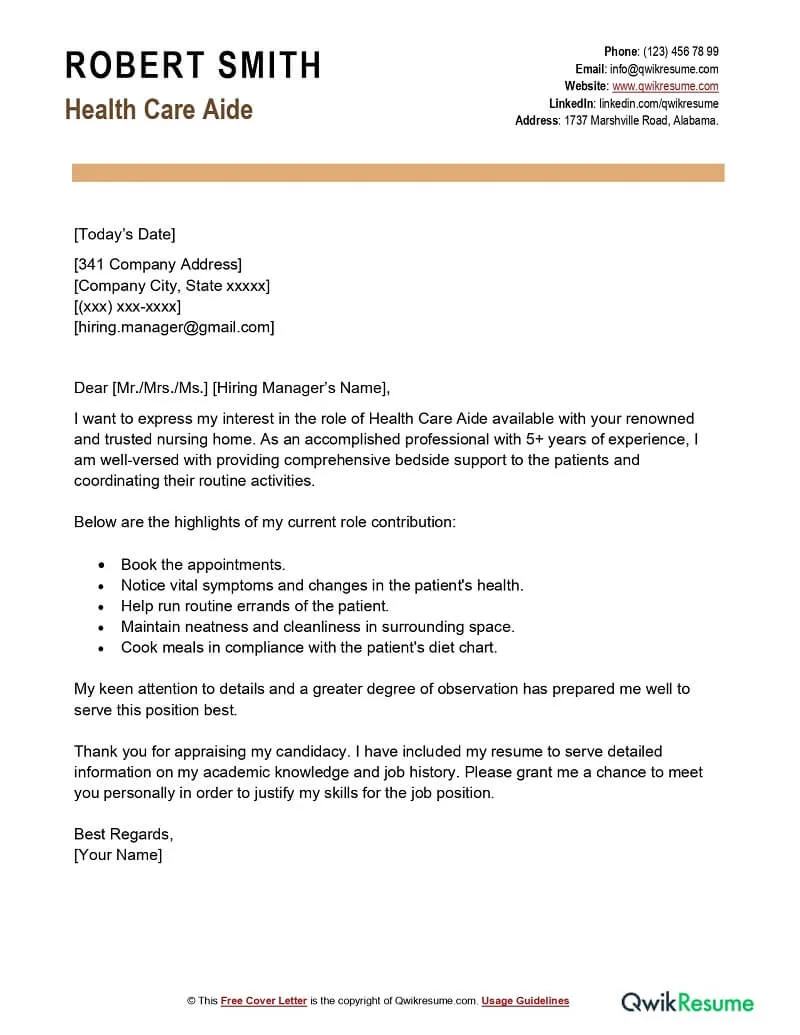
Your cover letter should prominently feature the skills that make you an ideal candidate for the healthcare position. These skills can be divided into two categories hard skills and soft skills. Hard skills include technical proficiencies such as medical terminology, proficiency in electronic health records (EHR) systems, or specific medical procedures you are trained to perform. Soft skills are equally crucial, encompassing communication, empathy, teamwork, and problem-solving. Highlight these skills by giving concrete examples from your past experiences. For example, instead of just stating, ‘I have excellent communication skills’, you could write, ‘In my previous role, I effectively communicated complex medical information to patients and their families, ensuring they understood their treatment plans and felt supported.’ By providing specific instances that demonstrate your skills, you create a more compelling narrative that sets you apart. Furthermore, consider including keywords from the job description to ensure your cover letter aligns with the employer’s needs.
Researching the Healthcare Organization
Before you start writing your cover letter, take time to research the healthcare organization you are applying to. Understanding their mission, values, and specific initiatives will enable you to tailor your letter to their needs. Visit their website to gather information about their services, patient demographics, and recent achievements. Look for news articles, social media posts, or any other relevant information that can give you insights into their culture and goals. By demonstrating that you have done your homework, you show the hiring manager that you are genuinely interested in the position and committed to the organization. Mentioning specific programs or values that resonate with you will also make your letter stand out. If the organization emphasizes patient-centered care, for example, highlight your experience in providing compassionate care. This shows that you share their values and can contribute positively to their mission, increasing the likelihood of you being selected for an interview.
Crafting a Compelling Opening
The opening paragraph of your cover letter is critical; it’s your chance to grab the hiring manager’s attention and encourage them to continue reading. Begin with a strong statement that immediately grabs their attention, such as expressing your enthusiasm for the position or highlighting a key achievement that aligns with the job requirements. Mentioning how you discovered the opportunity (e.g., a job board, a referral) can also be a good approach. Make sure to include the specific job title and where you saw the posting. State your purpose clearly and concisely. Avoid generic openings; instead, tailor your introduction to the specific role and organization. For example, if the job description emphasizes teamwork, you might begin by highlighting your ability to collaborate effectively in a healthcare setting. By making a positive first impression, you set the stage for the rest of your cover letter and create a compelling case for why you are the ideal candidate for the job.
Showcasing Relevant Experience
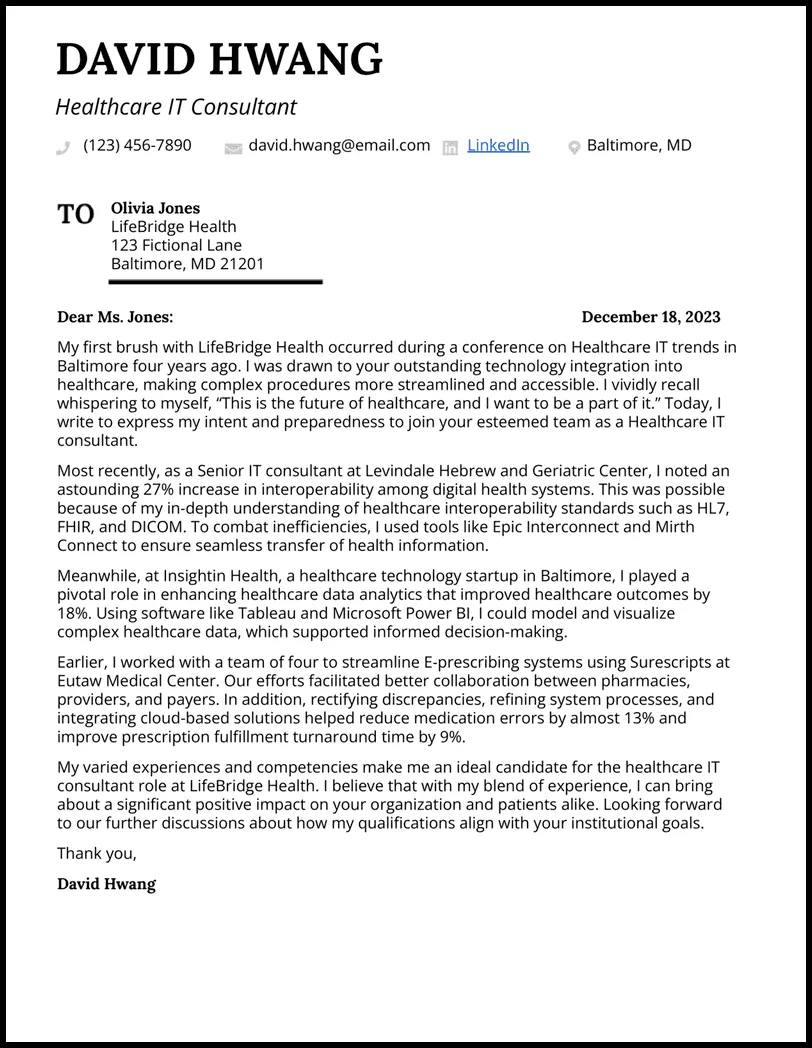
Tailoring Your Experience to the Job Description
One of the most critical aspects of a successful healthcare cover letter is tailoring your experience to the specific requirements of the job description. This means carefully analyzing the job posting to identify the key skills, qualifications, and responsibilities that the employer is seeking. Once you have a clear understanding of these needs, you can then align your experience to match them. Focus on the experiences and accomplishments that are most relevant to the role. For each point, provide concrete examples to support your claims. For instance, if the job description requires experience in patient assessment, you can describe a specific situation where you successfully assessed a patient, highlighting the methods you used and the positive outcomes you achieved. By tailoring your content to match the job description, you demonstrate that you understand the position and have the specific skills necessary to succeed. This helps the hiring manager to see you as a good fit and increases the likelihood of them inviting you for an interview.
Quantifying Your Achievements
In the competitive world of healthcare, it’s essential to quantify your achievements in your cover letter. Instead of simply stating that you improved patient care, describe your accomplishments using numbers, percentages, and other measurable data. This approach provides concrete evidence of your impact and demonstrates your ability to make a positive difference in your previous roles. Use specific examples. Instead of saying ‘Improved patient satisfaction’, you can quantify it by saying, ‘Increased patient satisfaction scores by 15% within six months by implementing a new communication strategy.’ When describing your skills, be specific. For example, instead of saying ‘Managed medical records,’ write ‘Managed and maintained over 500 patient medical records, ensuring 100% accuracy and compliance with HIPAA regulations.’ By quantifying your achievements, you provide a more compelling and persuasive narrative that showcases your value to potential employers. This method allows the hiring manager to easily understand the tangible benefits of hiring you, increasing your chances of being invited for an interview.
Using Action Verbs to Describe Your Experience
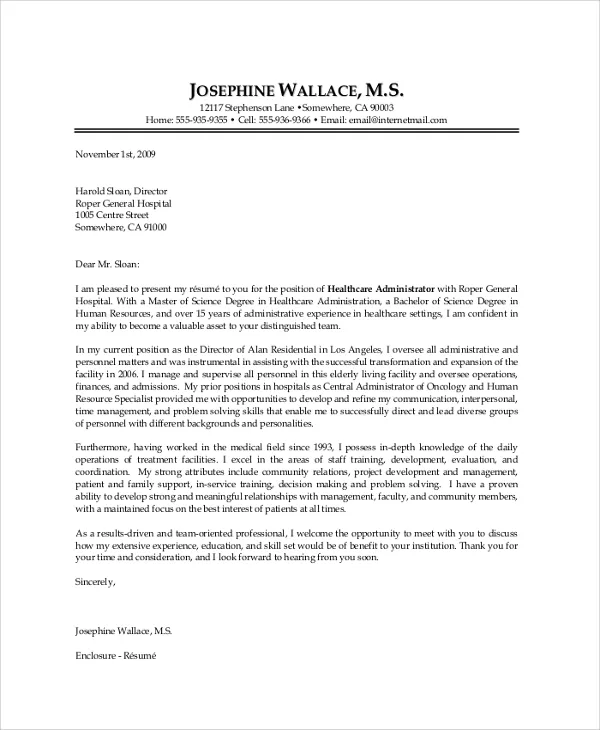
To make your cover letter more impactful, use strong action verbs to describe your experience and accomplishments. Action verbs bring your experiences to life, making your cover letter more dynamic and engaging for the reader. Instead of using passive language, opt for verbs that highlight your skills and achievements. For example, instead of writing, ‘Responsibilities included providing patient care’, use an action verb like ‘Provided compassionate patient care’ or ‘Administered medication with precision’. When describing your achievements, choose verbs that show initiative and results such as ‘Implemented a new patient education program’, or ‘Managed a team of healthcare professionals’. Refer to the job description to understand what the employer is looking for and use corresponding action verbs. This will make your application more relevant and show you can deliver the results expected. By using action verbs, you not only highlight your skills but also create a more compelling narrative that demonstrates your abilities and potential contributions in the new role.
Demonstrating Your Passion for Healthcare
Expressing Your Understanding of the Healthcare Field
A successful healthcare cover letter should demonstrate a deep understanding of the field and the specific challenges and opportunities within it. Showing that you are knowledgeable about the healthcare landscape demonstrates your dedication to the profession. Discuss relevant industry trends, challenges, and developments. Research the latest advances in patient care, technological innovations, and healthcare policies. Then, incorporate these insights into your cover letter. Also, mention your knowledge of healthcare ethics, patient rights, and any relevant regulations that pertain to the role. This will demonstrate your understanding of the complexities of the healthcare field. Show the hiring manager that you have a broad view of the industry and a solid foundation of the field. You might express your thoughts on patient-centered care or the importance of collaboration, reflecting the values of healthcare providers and reinforcing your suitability for the role. By showcasing a deep understanding of the healthcare field, you reinforce your interest and passion for the industry.
Sharing Your Career Goals
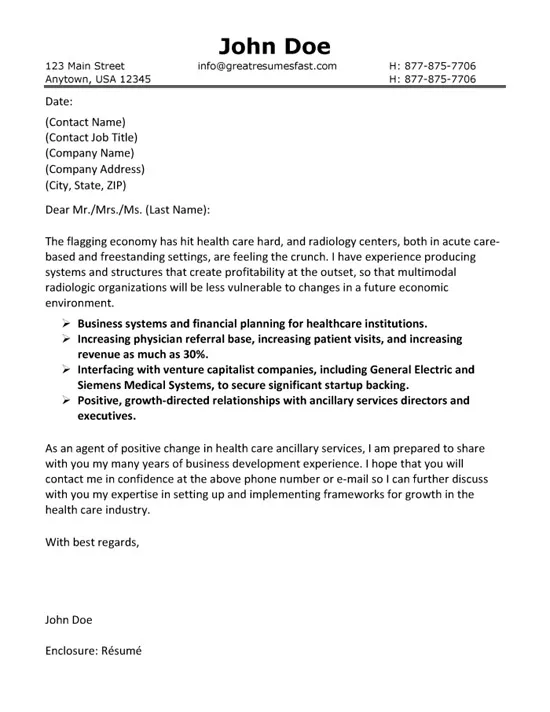
Include a section in your cover letter that clearly states your career goals. This shows the hiring manager that you have a vision for your professional development and that you are serious about your career in healthcare. Be specific. Instead of saying you want to ‘grow in your career,’ state what you are hoping to achieve in the role. This could include specific skills, experience or responsibilities you are looking to gain. Relate your career goals to the position you’re applying for and the organization’s mission. By demonstrating a connection between your goals and the company’s values, you show you’re invested in a long-term relationship. For example, if the job involves specialized training, mention that you hope to gain proficiency. Consider how your ambitions align with the job. Explain how this opportunity helps you grow and achieve your goals, demonstrating your commitment to the organization and the healthcare industry.
Writing a Strong Closing
Your closing paragraph is an important opportunity to reiterate your interest in the position and express your enthusiasm for the next steps in the hiring process. Keep the tone professional and optimistic. Thank the hiring manager for their time and consideration. Then, restate your interest in the position and summarize why you believe you are a good fit. Always include a call to action. This encourages the hiring manager to contact you. You can invite them to contact you to schedule an interview. Make sure you provide your contact information, including your phone number and email address. Consider adding a final statement that reflects your commitment to the organization’s mission or values. This will leave a lasting impression. A well-crafted closing not only reinforces your qualifications but also provides a clear pathway for the next steps in the hiring process, increasing your chances of securing an interview and ultimately, the job.
Proofreading and Editing Your Cover Letter
Checking for Grammatical Errors and Typos
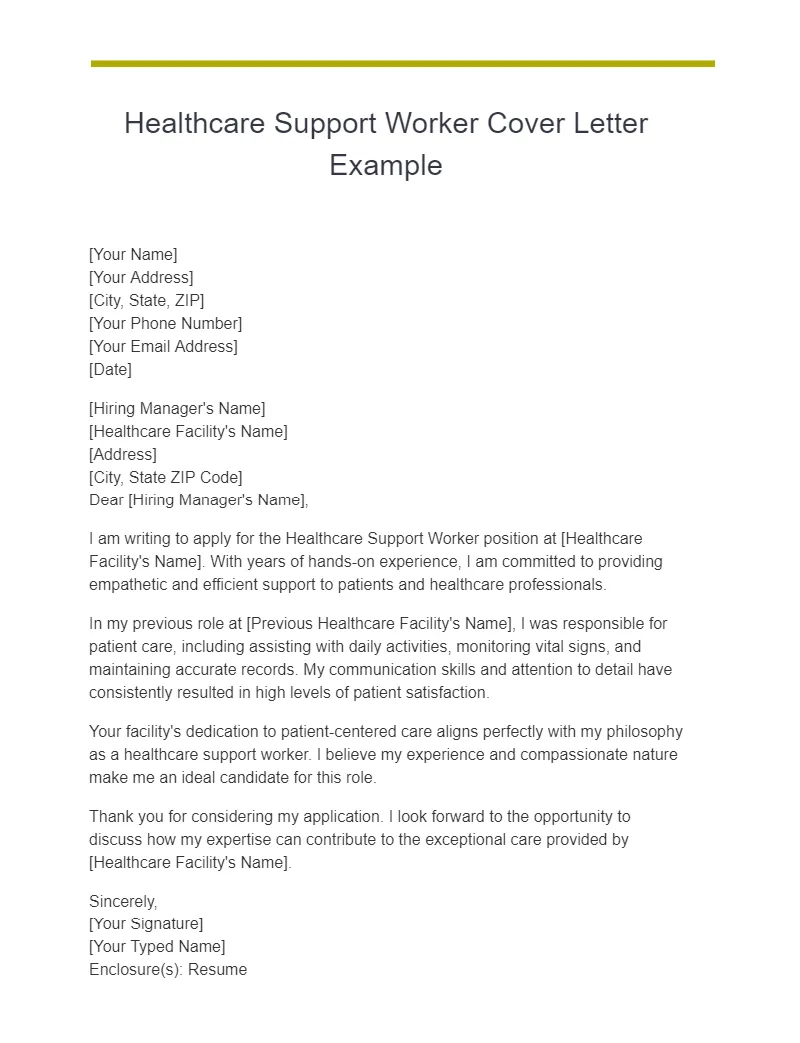
Before submitting your cover letter, it’s essential to proofread and edit your work thoroughly. Errors can significantly detract from your professionalism, demonstrating a lack of attention to detail. Start by reading your cover letter carefully, looking for any grammatical errors, typos, and punctuation mistakes. Enlist a friend or colleague to review your letter. A fresh pair of eyes can catch errors you might have missed. Proofread your cover letter multiple times, ideally on different days, to ensure you catch all mistakes. Reading your cover letter aloud can also help to reveal any awkward phrasing or grammatical errors. Use grammar-checking tools, such as Grammarly, but do not rely on these tools alone. They can miss nuances. Paying close attention to detail and making corrections is crucial. A flawless cover letter shows the hiring manager that you are attentive to detail, organized, and care about the quality of your work, thus increasing your chances of making a positive impression and securing an interview.
Ensuring a Professional Format
Ensuring a professional format for your cover letter is crucial for making a good first impression. Use a professional font, such as Times New Roman, Arial, or Calibri, in a size between 10 and 12 points. Stick to a single font throughout the entire document for consistency. Use standard margins (1 inch on all sides) and double-space between paragraphs to make your letter easy to read. Use a clear and professional layout. Your contact information should be at the top, followed by the date and the hiring manager’s name and address. Keep your letter concise, ideally no longer than one page. Avoid long blocks of text, and break up your content with paragraphs that are easy to read. Ensure that your letter is properly aligned and well-organized. Proper formatting demonstrates your attention to detail and professionalism. By following these guidelines, you increase your chances of creating a cover letter that makes a positive impression.
Seeking Feedback on Your Cover Letter
Once you have drafted your cover letter, seek feedback from trusted sources. Asking others to review your cover letter provides valuable insights, helping you identify areas for improvement and catch any errors. Share your cover letter with career counselors, mentors, or friends who have experience in healthcare or hiring. Ask them to assess your cover letter. Ask for honest feedback on clarity, grammar, and overall effectiveness. Be open to suggestions. Revise your letter based on the feedback you receive. Refine and rewrite sections to improve the overall quality of your application. It also helps to have someone review your letter specifically for the job you are applying for. You can also ask for feedback on how well you tailor your content. Seeking feedback shows your dedication to presenting a professional application and improving your chances of success.
